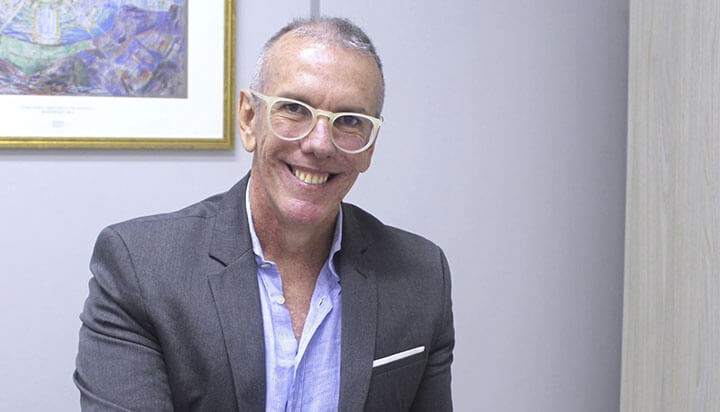Professor and researcher Carlos Alberto Oliveira, of the Laboratory of Technological Innovation in Health of the Federal University of Rio Grande do Norte (LAIS/UFRN), was elected member of the Executive Committee of the International Council for Open and Distance Education (ICDE), a global organization led by members in the field of online education, open, flexible and improved in technology that gathers more than 190 educational institutions and organizations from more than 70 countries, among them the UFRN.
The committee works as the manager, in a collegial format. Four members of affiliated institutions and one member elected by individual members: this is the case of Professor Carlos Alberto Oliveira. The event is relevant for UFRN, which in 2021 will receive, through LAIS, the 29th edition of the ICDE congress, transforming the city of Natal and Rio Grande do Norte into the center of discussions on open and distance education around the world.
Participating in the ICDE congresses since 1999, the professor highlighted the satisfaction of representing the Latin American countries in the events of the organ. “It was with great satisfaction that I received this election as a member of the ICDE executive committee for the period 2020/2023. I am very happy because almost two decades ago I participated in my first ICDE congress, in Austria, and since then I have participated in practically all editions, representing with great dignity the countries of the Americas in this organization. It was very nice because it is the recognition of a work”, says Carlos.
According to the professor, for Brazil, this election came at a strategic moment, since open and distance education has grown exponentially, and we have to ensure that it has great quality. “I am grateful to all the institutions that have enabled me to participate in ICDE. There is a lot of work ahead and, immediately, it is necessary to develop actions that ensure the fulfillment of the sustainable development objectives present in the 2030 agenda, proposed by the UN,” he adds.
Graduated in Law from the State University of Rio de Janeiro (UERJ), Carlos Alberto Oliveira is a visiting professor at the Federal University of Mato Grosso do Sul, member of the Research Ethics Committee of the Municipal Secretariat of Health of Rio de Janeiro, researcher at the Laboratory of Technological Innovation in Health (LAIS) of the Federal University of Rio Grande do Norte (UFRN) and assistant professor at the FHT) of the State University of Rio de Janeiro, where he holds the position of vice-director.
He has experience in the area of Public Health, with emphasis on Work Management, working mainly in distance education, continuing education in health, lifelong education, technological mediation, public policies in health, with emphasis on network management, integrity and responsible conduct of research, and research ethics involving human beings.
ICDE
Founded on August 24, 1938, the International Council for Open and Distance Education is located in Oslo, the capital of Norway. Their vision is “to be the global facilitator of inclusive, flexible and quality learning and teaching in the digital age”. To this end, in addition to the Norwegian government itself and the associated institutions and organizations, ICDE also has partnerships with bodies such as the United Nations Educational, Scientific and Cultural Organization (UNESCO).





